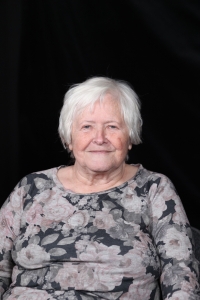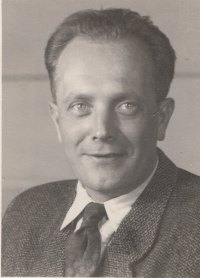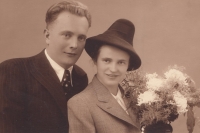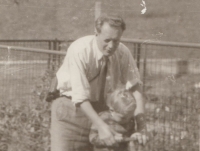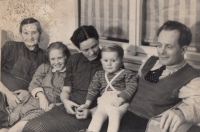Seeking the truth about the death of Rudolf Vavřena

Download image
Blanka Homolková, née Vavřenová, was born on the 24th of February in 1940 in Červený Kostelec. Her father Rudolf Vavřena joined the Communist party in 1938, during the Protectorate, he participated in the Communist resistance and in 1941, he was arrested by the Gestapo and until the end of WWII, he was detained in the concentration camp in Gollnov. In 1948, he served as a criminal investigator in Hradec Kralové and at the local branch of the archives of the Ministry of the Interior, he allegedly saw some classified documents. On the 1st of August 1952, witness’ father was shot in service under suspicious circumstances and there are indications that it might be a premeditated murder. Mother, grandmother and two children then lived in misery. In the beginning of 1953, the mother was paid 50 000 crowns as an one-time payout, which lost value in the monetary reform in June of 1953. After father’s death, mother suffered from a mental illness that presented as aggression towards family members. Blanka started studying at a business academy in Náchod. In the fourth year, she was pressured and threatened to sign an application for the trial membership in the Communist Party. After she graduated in 1958, she got a job assignment to the town council in Náchod where she worked as an accountant. At the same time, her mother was institutionalised in a psychiatric hospital in Havlíčkův Brod and at the age of eighteen, Blanka became the legal guardian of her younger brother Miloš and her disabled mother. In 1962, her grandmother died and in 1963, Blanka started working in the production cooperative Sněžka Náchod. In 1964, she got married and from the 1st of January 1965, she lived in Prague. In the 1960’s, she attempted to find out about the circumstances of her father’s death. She got an accounting job in the manufacturing cooperative, Drutěva Praha. In 1967, her request to have her membership in the Communist party ended was granted. In 1968, she met one major Špaček from the Ministry of Interior to discuss her father’s death. She had to sign a non-disclosure agreement. In the 1980’s, she got a job in the Union of Production Cooperatives. In 2016, she petitioned the Institute for the Study of Totalitarian Regimes to inquest her father’s death. In April 2017, the District Attorney’s Office in Náchod dismissed the case without the possibility of appeal.
